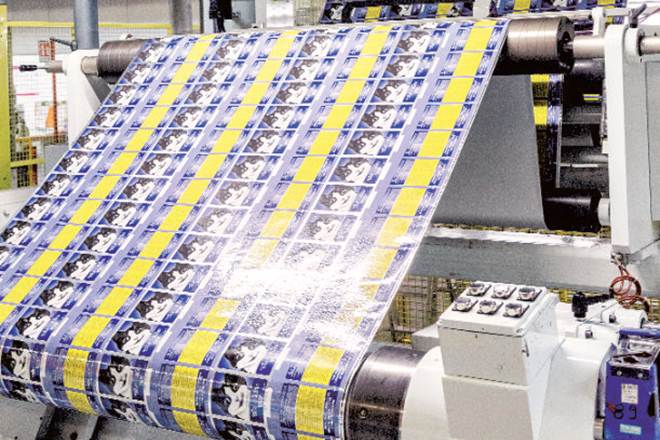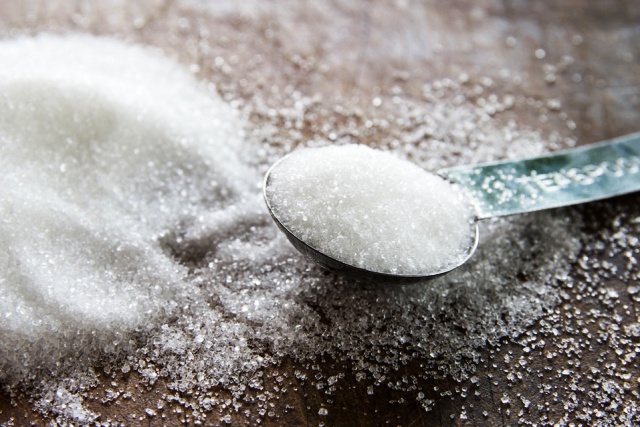Jul 3, 2019
Why Sugar Sector is Opposing FSSAI Move on Labeling Products with Sugar?
The Food Safety & Standards Authority of India (FSSAI) has issued draft regulations which would aim to mandate packaged food companies to label sugar content of products. These companies have to label high fat, sugar and salt contents in front of the package in red colour.
Currently, most of the packaged food firms print nutrition details of the contents that include their recommended daily values, at the back of the package. In a bid to encourage customers make healthier food choices, these regulations propose to make it mandatory to display red colour-coding on front-of-the-pack labels on packaged food products that have high-fat, high-sugar and high-salt content levels. This requirement would be implemented in a phased manner for a period of three years, FSSAI said.
FSSAI said food labels will declare, per serve percentage contribution to recommended dietary allowance on the front of the pack. Members of the Indian Sugar Mills Association (ISMA) & National Federation of Cooperative Sugar Mills that represent both private and cooperative sugar sectors then met the chairman of FSSAI to oppose the draft policy.
For the country’s sugar millers which are already reeling under the impact of falling prices and a piling inventory, this move could come as a major blow as it would imply that consumption of sugar is harmful for health.

The country has been planning these rules, as early as two years ago, requiring food manufacturers to display fat, sugar and salt content on their labels and had been also considering a nationwide “fat tax” on so-called “junk food” to encourage consumers to make healthier food choices. Prakash Naiknavare, Managing Director, National Federation of Cooperative Sugar Factories (NFCSF) termed this as a wrong move at a wrong time. “The industry currently has its back against the wall with a record inventory of the previous season and the current season and there are no sales happening. There is no lift in the market and most importantly, there is no evidence to suggest that the consumption of sugar is harmful. Anything consumed in excess is harmful and in a poor country like India, sugar is the cheapest source of energy. One cannot club sugar in the same class as alcohol, cigarettes and white cocaine.”

Six months ago, the federation had taken up the issue when a workshop was held to impress upon the FSSAI officials to substantiate its stand. FSSAI Chairman had then agreed to put the draft regulations on hold. “Now that it has been revived, we will have to renew our efforts,” he opined.
Maharashtra State Cooperative Sugar Factories Federation MD Sanjay Khatal highlighted that FSSAI needed to reconsider its decision in respect of sugar. “Sugar is a food item essential in terms of requisite blood sugar and energy for the body. It is not an intoxicant requiring statutory warnings. The pressure groups working against sugar and lobbying with governments across the world need to instead focus on educating the need for active lifestyles by individuals consisting of daily exercises and reducing stress. World over where malnutrition is an issue, sugar intakes are pathetically poor and needed to taken note of, too,” he added.
Thiruvananthapuram: Cooking oil to be ‘reused’ to make biofuel
Food biz operators must hand over oil instead of reheating.

FSSAI standards allow the reuse of cooking oil until it reaches a maximum Total Polar Compound (TPC), considered as an accurate indicator of the quality of frying oil, the limit of 25 per cent.
THIRUVANANTHAPURAM: As part of its effort to prevent reuse and ensure scientific disposal of cooking oil by food business operators (FBOs), Kerala Commissionerate of Food safety (KCFS) has launched Ruco or repurpose used cooking oil.
The initiative mandates the FBOs to hand over the oil to agencies accredited by the Food Safety and Standards Authority of India (FSSAI) for biodiesel production.
The plan is to ensure a tie-up with FBOs and accredited agencies under Biodiesel Engine Association for collection and disposal of used fryer oil.
The Commissionerate has found severe malpractices involved in the usage of cooking oil by FBOs, which could pose a serious health threat to consumers. Its toxicity is associated with several ailments such as hypertension, atherosclerosis and liver diseases.
A top official of the Commissionerate told DC that a survey to find out disposal method adopted by FBOs for used cooking oil is ongoing at all districts. The food safety authorities have identified around 24 FBOs in Thiruvananthapuram and Alappuzha who uses above 50 litres of cooking oil per day.
“As per the information we got, there are agencies collecting cooking oil, but we are not sure how they are disposing of it. Once the survey is finished, we will be convening a meeting with all the agencies involved in this.
Only accredited agencies would be allowed to collect fryer oil. Reuse of cooking oil is pervasive in the state,” said an official.
FSSAI standards allow the reuse of cooking oil until it reaches a maximum Total Polar Compound (TPC), considered as an accurate indicator of the quality of frying oil, the limit of 25 per cent.
Recently, FSSAI had provided digital cooking oil tester to the Commissionerate to check their quality at eateries and bakeries.
According to officials, discarded oil dumped into water bodies and open spaces could degrade the environment, and hence scientific disposal should be ensured.
Fact check: No, potassium ferrocyanide in some salt brands is not at toxic levels
Workers move the extracted salt from pan to avoid produce getting washed away in case of rain, at Motumala in Prakasam district.
Citing a report from U.S.-based West American Analytical Laboratories, Shiv Shankar Gupta, chairman of Godhum Grains and Food Products, accused some salt manufacturers in India of selling food-grade salt that contained high levels of potassium ferrocyanide. This caused a panic, which was aggravated by widespread sharing of the news item on social media.
Indeed, potassium ferrocyanide is being used in salt to give it anti-caking properties. But the answer to whether it is toxic is no!
Firstly, while potassium cyanide is a toxic substance and releases the cyanide anion when consumed by a person, potassium ferrocyanide is not. In potassium ferrocyanide, the cyanide anion is strongly bonded to ferrous ion and hence does not get hydrolysed.
An image widely shared in social media.
Secondly, there is the factor known as the LD50 value. This is expanded as “Lethal Dose 50%”. LD50 is the amount of any chemical that can cause death in 50% of the group of animals that it enters by consumption or absorption through the skin.
According to inorganic chemist Dr. Sayam Sengupta of IISER Kolkata, the LD50 value for common salt — sodium chloride — for rats is greater than 3 gram per kilogram body weight of the animal. He points out that for potassium Ferrocyanide, LD 50 value is 3.6 gram per kilogram weight of the animal, when taken orally.
As this indicates, the LD50 value of potassium ferrocyanide is almost the same as common salt.
Thirdly, the Food Safety and Standards Authority of India (FSSAI) has prescribed the levels of potassium ferrocyanide that can be used in salt. As Dr Arvind Kumar, Principal Scientist with the Central Salt and Marine Chemicals Research Institute of the CSIR, clarifies, the allowed levels of potassium ferrocyanide in salt is 10 mg/kg. whereas the level in the Tata salt was found to be 1.90 mg/kg and that of Sambhar salt was found to be about 4.71 mg/kg, both within allowed levels.
Some countries such as the European Union have banned the use of potassium ferrocyanide as anti-caking agent. However, the analysis indicates that there is no reason to fear toxicity due to this chemical being used.
Claim Review: News article claims there is deadly cyanide in branded salt.
Fact Check: False
Subscribe to:
Comments (Atom)











